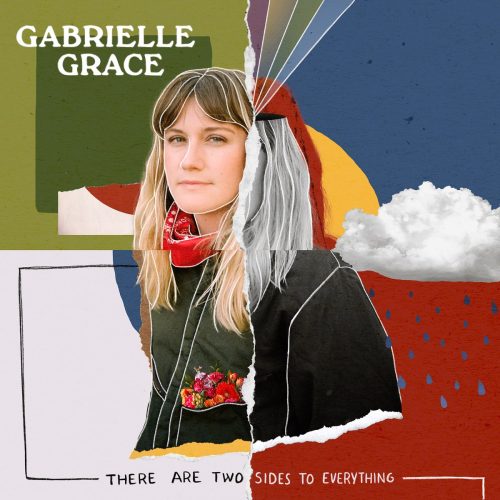Nashville singer-songwriter Gabrielle Grace is a master of paradox.
“I Wish That I Could Tell You” is a song about the pain of leaving things unsaid – but the song itself is a confession, a declaration, eventually an explosion of articulate desire.
The musical arrangement makes the song feel like a journey, even though the story is of a journey that didn’t start, that leaves the singer asking, “Why’d it have to end before it could begin?” The first verse rides along on the strums of an acoustic guitar, with shimmery notes from some instrument or machine I don’t recognize whooshing around in stereo.
A double world is set up: the real one, grounded in the body of the acoustic guitar, and the hoped-for, imaginary one, which fills the air but has no anchor.
The lyrics of the prechorus are at the hinge between what might have happened and what actually did, the point where hope touches reality. “If it was an option, would I let you in? Why’d it have to end before it could begin? If there was a moment, would you admit?”
The first prechorus is also where the bass guitar joins the arrangement – gently, almost hesitantly, as if it, too, was asking questions. Bass strikes me as the closest music comes to being a form of touch. It’s a felt sound. So its entrance in the prechorus engages not only deeper frequencies, but deeper feelings.
From the depth that the bass carries us into, the song can launch into the soaring chorus, where the singer can finally confess what she has left unsaid. “I wish that I could tell you / I wish that I could run into your arms.” Maybe what the singer wants to say is, “I wish that I could run into your arms.” Or maybe what she wants to say is some password that would cause the other person’s arms to open in welcome.
Either way, she seems to believe that there’s some series of words that would bring her hopes from imagination into reality.
And there are words like that, words that change the whole framework of your life. Some of them are legally binding. And even the ones that aren’t can permanently alter a relationship. If you don’t believe me, try telling someone “I love you.” Maybe words like this are easier to sing than to say because we can pretend that a song is pure fiction. Words in a song don’t have to change anything, because they’re not quite real. Or maybe a song is more suitable than ordinary speech because some feelings are too extraordinary for ordinary speech to hold.
There are plenty of reasons why “no one ever tells you” what they really want. Sometimes the situation isn’t right, or the time is wrong. But I guess the most common reason is that people are afraid. It’s hazardous to move love from imagination into reality, because only real things can really hurt. Maybe that’s another reason we sing these things instead of saying them directly – words in a song are strengthened, protected, and made brave by music.







